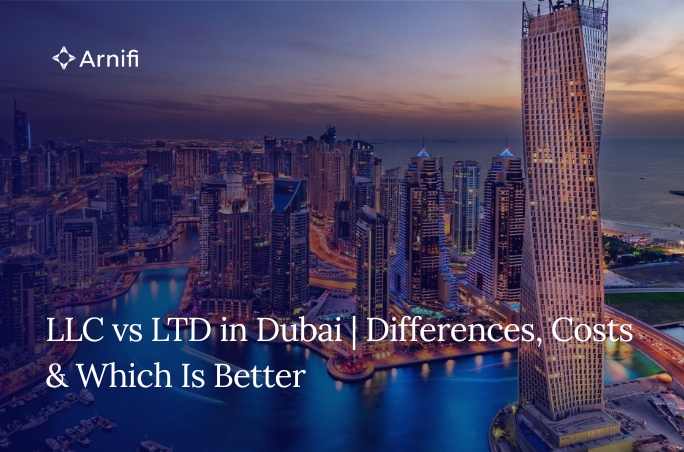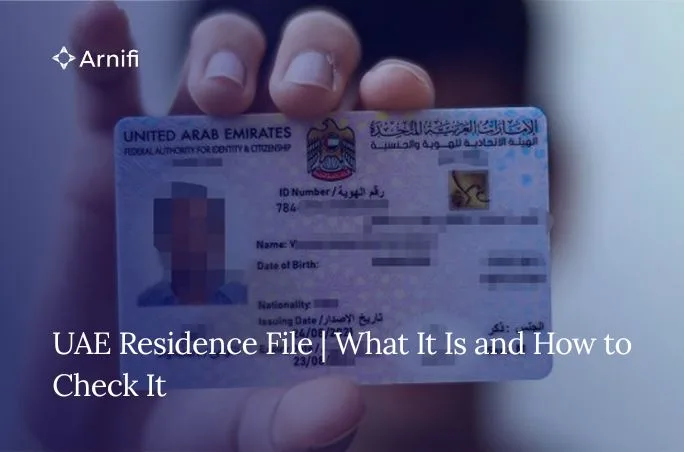Manufacturing in Dubai, UAE | Top Zones, Regulations & Investment Opportunities
by Ishika Bhandari Oct 20, 2025  7 MIN READ
7 MIN READ

Table of contents
- 1. Introduction
- 2. Key Industries for Manufacturing in Dubai, UAE
- 3. Why Companies Prefer Dubai for Manufacturing?
- 4. Best Jurisdictions to Set Up a Manufacturing Company
- 5. Types of Licenses for Manufacturing in Dubai
- 6. Cost Factors for Setting Up a Manufacturing Company
- 7. Step-by-Step Process to Start a Manufacturing Business
- 8. Regulations and Approvals to Consider
- 9. Challenges & Opportunities
- 10. FAQs
- 11. Conclusion
The arena of manufacturing in Dubai, UAE, is a rapidly growing scene of interest for investors with the advantages of tax benefits, global connectivity, and world-class industrial zones. In this guide, we explore the top manufacturing free zones, setup costs, and key regulations to successfully start your industrial business in this growing industrial economy of the UAE.
1. Introduction
The UAE, more specifically Dubai, is being fast-tracked to become an eminent manufacturing hub worldwide. Opportunities for industrialists adorn the landscape here, with the geographical location acting as an eye to the East and West, world-class infrastructure, and favorable business conditions.
Dubai’s air, sea, and soon rail connectivity give manufacturers access to the entire GCC MENA, Europe, and Asia. Taxation exemptions, 100% foreign ownership, and industry-specific free zones could be the icing on the cake in terms of why this site is one of the most attractive for setting up manufacturing businesses.
With the advent of sectors such as logistics, food & beverage, pharmaceuticals, automotive, construction, and consumer goods developing, Dubai’s industrial ecosystem is boosting together as one whole. Differently administered jurisdictions throughout Dubai and the UAE offer custom manufacturing zones, facilities, and incentives designed for individual business requirements.
2. Key Industries for Manufacturing in Dubai, UAE
The manufacturing industry in Dubai is very broad and dynamic. The major industrial sectors in the manufacturing landscape include:
- Food & Beverage Production-F&B manufacturing extends its primary production in Dubai from packaged food to beverages and confectionery
- Pharmaceutical and Medical Supplies-Emirate encourages healthcare manufacturing due to strict regulations and latest facility setups
- Packaging & Plastics-Growing at a tremendous pace with logistics/e-commerce and retail working hand in hand to enhance its growth
- Automotive Parts & Machinery-These manufacturers assemble parts, machinery, and equipment both for the GCC and export markets
- Metals, Steel, and Construction Materials-Always in production and powered by demand from the real estate and infrastructure sectors
- Cosmetics and Personal Care-The consumer market and exportability from Dubai are important factors making it a key hub of beauty manufacturing
- Electronics & Tech Hardware-Under the aegis of tech parks and logistics access, electronics assembly is flourishing
3. Why Companies Prefer Dubai for Manufacturing?
Manufacturers all over the world are drawn to Dubai due to unmatched incentives, connectivity systems, and strong regulatory support:
- 0% corporate and personal income tax
- Near Jebel Ali Port, Dubai International Airport, and Etihad Rail (under development)
- World-class logistics, industrial land, and warehousing
- Access to global markets across the GCC, MENA, Europe, and Asia
- Sustained Government support for industrial innovation and sustainability
- Streamlined customs and import/export procedures
- Political and economic stability in the environment
All these features make Dubai one of the world’s most industrial-friendly destinations.
4. Best Jurisdictions to Set Up a Manufacturing Company
This is vital in choosing which jurisdiction to apply to when establishing manufacturing in Dubai. Free zones and industrial precincts have different benefits attached depending on the industry type and the size of the business.
4.1 Dubai Industrial City (DIC)
DIC is addressing the following industries: F&B, machinery, chemicals, and logistics. It offers industrial land plots, warehouses, and light-to-medium manufacturing licenses.
4.2 JAFZA (Jebel Ali Free Zone)
JAFZA is a perfect location for export-oriented manufacturers since it neighbors the Jebel Ali Port. It offers cargo direct to shipping routes and integrated logistics solutions.
4.3 RAKEZ (Ras Al Khaimah Economic Zone)
RAKEZ is a low-priced option for investment for SMEs to large manufacturers, offering customized facilities, warehouses, and industrial land.
4.4 KIZAD/KEZAD (Abu Dhabi)
Considered for heavyweight industries and integrated logistics, KEZAD is most appropriate for large-scale production, steel, and F&B clusters.
4.5 Dubai South Free Zone
This zone feeds into Al Maktoum International Airport, benefiting manufacturing businesses oriented toward aviation and logistics.
4.6 Sharjah Airport International Free Zone (SAIF Zone)
A cost-effective option for mid-scale manufacturers offering flexible industrial spaces, with easy access to airports and ports.
4.7 Umm Al Quwain Free Trade Zone (UAQ FTZ)
UAQ FTZ assists not only light manufacturing but also acts as an incubator for startups intending to enter the small-scale UAE industrial landscape.
5. Types of Licenses for Manufacturing in Dubai
Manufacturers should avail themselves of licenses as required for their activity to operate in a legal framework:
- Industrial License – To carry out all productive activities or manufacturing processes
- Trading License – For enterprises importing, exporting, and distributing products
- Commercial License – If your organization renders services related to industrial areas
Dubai also permits dual-license schemes that allow the manufacturing sector to operate in both mainland and free-zone markets.
6. Cost Factors for Setting Up a Manufacturing Company
Cost varies according to the scale of the establishment, industry processed, and all cost factors associated with:
- License fees (industrial, trading, or commercial)
- Warehouse or land lease
- Construction and facility setup
- Machinery and equipment purchase
- Employee and associated visa quotas for technicians and managers
- Approvals from Dubai Municipality, Civil Defense, and the Environment Department
- Utility connections (DEWA, Etihad Water, electricity)
Your set-up will determine an initial investment within the range of AED 100,000 to AED 500,000 or even higher.
7. Step-by-Step Process to Start a Manufacturing Business
- Choose jurisdiction – Industry-based and budget-based
- Define the manufacturing activity
- Obtain preliminary approval from the competent authority
- Submit factory layout and feasibility plan
- Get environmental and safety approvals
- Register and license your company
- Lease industrial land or a warehouse
- Install machinery and arrange utilities
- Apply for employee visas and labor quotas
- Commence production activities
8. Regulations and Approvals to Consider
Compliance with all regulatory authorities is essential for manufacturing companies to maintain safety and quality standards:
- Dubai Municipality – Building, waste management, and production compliance
- Ministry of Industry and Advanced Technology (MoIAT) – Develop an industrial registration and national standards
- Dubai Civil Defense – Fire and safety approvals
- Environmental Protection Departments – Pollution and waste control
- ESMA (Emirates Authority for Standardization and Metrology) – Product certifications and standards
9. Challenges & Opportunities
While Dubai’s manufacturing environment is investor-friendly, it still requires careful planning.
Challenges:
- High initial capital and equipment costs
- Strict adherence to and volumes of documentation for compliance and regulation
- Skilled labor recruitment and visa procedures
Opportunities:
- Increasing demand domestically is favouring a reduction in imports
- Strong government backing under the “Make it in the Emirates” initiative, supporting exports through free zones and logistics corridors
- Huge potential for sme and international companies in innovative sectors
10. FAQs
No, most free zones allow 100% foreign ownership without a local sponsor.
Yes, by virtue of the free zones in Dubai and the changes in mainland reforms, expats can own their businesses outright.
Between AED 100,000 and AED 500,000, according to amplitude and equipment costs
Normally, it takes between 2 and 4 weeks to process, based on approvals and jurisdiction
Yes, free zones save customs charges and provide ports/airports closer for effective exports.
Yes, companies may apply for labor quotas and sponsor skilled and unskilled workers.
11. Conclusion
Dubai and the UAE are fast becoming major manufacturing destinations globally due to the setting up of several attractive free zones, strong infrastructure, and investor-friendly regulations. Be it food, machinery, or consumer goods, the region promises just unmatched scalability and export potential.
Success is defined by the jurisdiction, license type, and setup plan, and with an expert’s assistance, you can make the process far easier.
Unravel the best manufacturing zones in Dubai and go on to consult experts such as Arnifi for an efficient start-up of the industrial journey.
Top UAE Packages

Related Articles
Top UAE Packages



